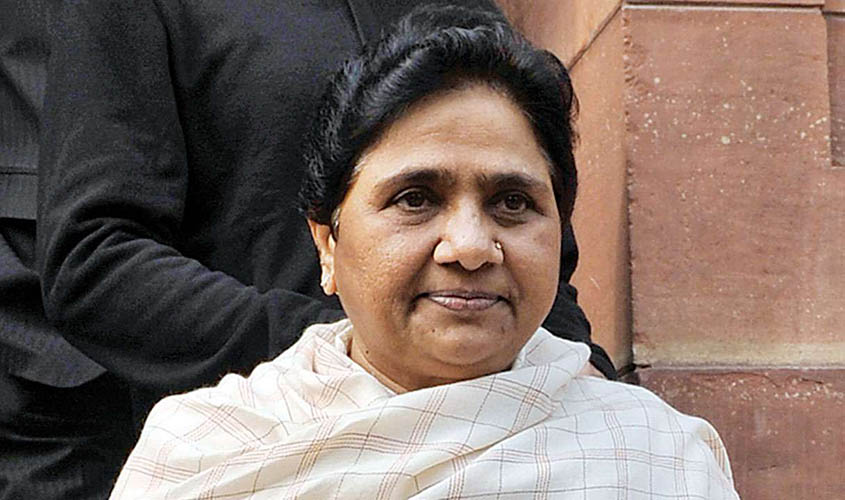New Delhi: One of the clear implications of the results of Assembly elections in Haryana and Maharashtra has been the weakening of Dalit political parties like Mayawati’s Bahujan Samaj Party (BSP) and Prakash Ambedkar’s Vanchit Bahujan Aghadi (VBA).
Despite having a sizable number of Dalit electorates in both Haryana and Maharashtra, the parties which claim to be the flag bearers of Dalit politics, have totally failed to make inroads in these elections.
For example, in Haryana, 17 seats out of the total 90 are reserved for candidates coming from the Scheduled Castes (SC), while in Maharashtra, at present, 29 constituencies out of total 289 (including one appointed member) are reserved for SC candidates. Interestingly, the home of Dalit politics has seemingly rejected the social experiment of VBA’s Prakash Ambedkar.
Although the VBA’s performance in the last Lok Sabha polls that were held in May-June this year, was fairly impressive as the party managed to bag 14% vote share or 41 lakh votes, five months later in the Assembly polls held on 24 October, the VBA’s votes fell from 41 lakh to 24 lakh and it couldn’t win even a single seat.
However, Prakash Ambedkar doesn’t see the Assembly results as the outfit’s poor performance and claims that due to lack of resources, the VBA couldn’t manage to perform well. According to the experts, who have been watching the VBA’s steps in Maharashtra elections, while the VBA was facing internal crisis, the VBA also failed to woo the Ambedkarite Buddhists and that caused the party’s defeat on 6-7 seats.
Akshy Narkar, a scholar of social science at the University of Mumbai, told The Sunday Guardian: “The VBA’s claim may not be invalid that it had limited resources for contesting Assembly polls in a big state like Maharashtra, that too on a whopping 241 constituencies, but the party cannot shy away from the reality that it failed on so many strategic fronts. Firstly, the VBA couldn’t manage to weave an alliance with any political outfit of the state. Secondly, the VBA did not put much effort to woo the Ambedkarite Buddhist community and, finally, the party failed in resolving the infighting.”
“During the polls, we traveled across the state and found that the VBA’s selection of candidates and campaigns were seemingly not appropriate. We also found that the VBA couldn’t politicise the Dalit segment of voters on various issues and that perhaps led to the failure of the VBA in the Assembly elections,” Narkar said.
Similarly, with BSP supremo Mayawati’s appeal on the Dalits is waning, the Dalits voters in Haryana preferred the Congress, the BJP and the newly formed Jannayak Janata Party (JJP) for casting their votes over the BSP, a Dalit flag-bearer party. Dalits form 19 % of the total electorates of the state.
There are 17 seats reserved for Scheduled Castes in Haryana, of these 17 seats, the BJP has won five, the Congress seven and Others five in the Assembly polls held on 24 October. Among Others, JJP has won four seats. In the 2014 Assembly elections, the BJP had won 9 of the 17 reserved seats in Haryana, while the Congress and Others won 4 seats each.
The Congress in even its worst shape managed to get 7 seats out of the total 17 reserved seats of Haryana and even the newly formed JJP managed to get 4 seats in the latest Assembly polls. BSP witnessed a sharp decline in its vote share across Haryana.
As per political pundits, till 2009, the BSP was quite a determining factor in Haryana polls and no political party could have thought of ignoring its presence. The BSP’s vote-share in Haryana hovered around 7-8 % and in the 2009 Assembly polls, BSP had bagged two seats. In the current Assembly polls, BSP secured only 4.1% vote share. The BSP also contested the Assembly polls in Maharashtra, but it got just 0.9% vote share with hardly any recognition among voters of the state.
Sanjeet Yadav, a scholar of Kurukshetra University, told The Sunday Guardian: “Dalits are not a homogenous block in Haryana and neither in any part of the country. These segments of voters are equally divided like the general caste voters and they vote differently. Besides this, the reason behind the downfall of the Dalit political outfits is the BJP’s current form. In its current form, the BJP offers everything which can map the imagination of Dalit voters. For example, the BJP has attracted these Dalit communities across the country through its schemes like Ujjwala and PM Awas Yojana which has helped the party in winning the Dalit votes in the last Lok Sabha polls.” “Also, the RSS, the ideological powerhouse of the BJP, is continuously working among the marginalised groups of the country. The RSS, through its schools, hospitals and shakhas, is trying to shape a unique grand narrative of Hindutva and this narrative in some sense helps the BJP in the electoral battle across the country,” Yadav said.
According to the experts, theoretically, the neo-Dalits (educated urban youths) do not really assimilate themselves with any particular party, especially Dalit political outfits as the aspirations of this segment of voters are similar to that of the upper caste voters and, therefore, they opted to vote for parties like the BJP-Shiv Sena in Maharashtra and Congress, BJP and the JJP in Haryana and not for the VBA or the BSP.

